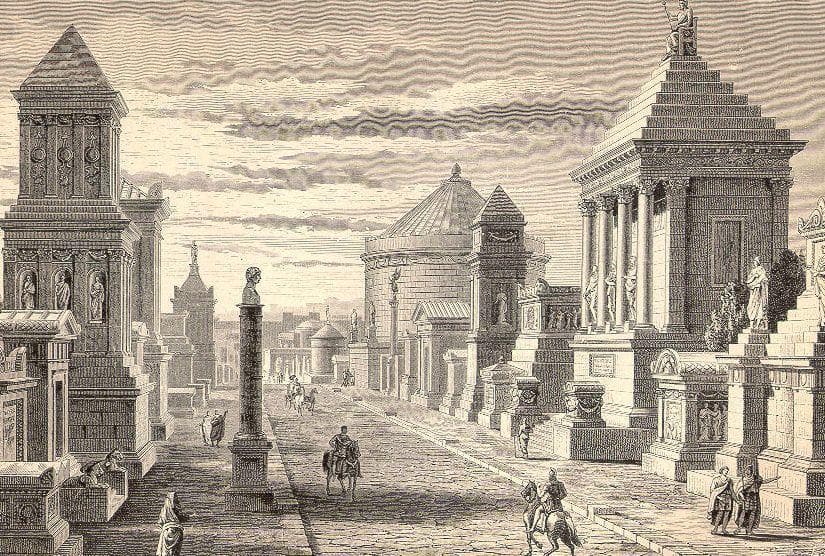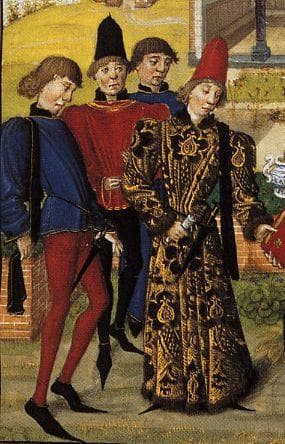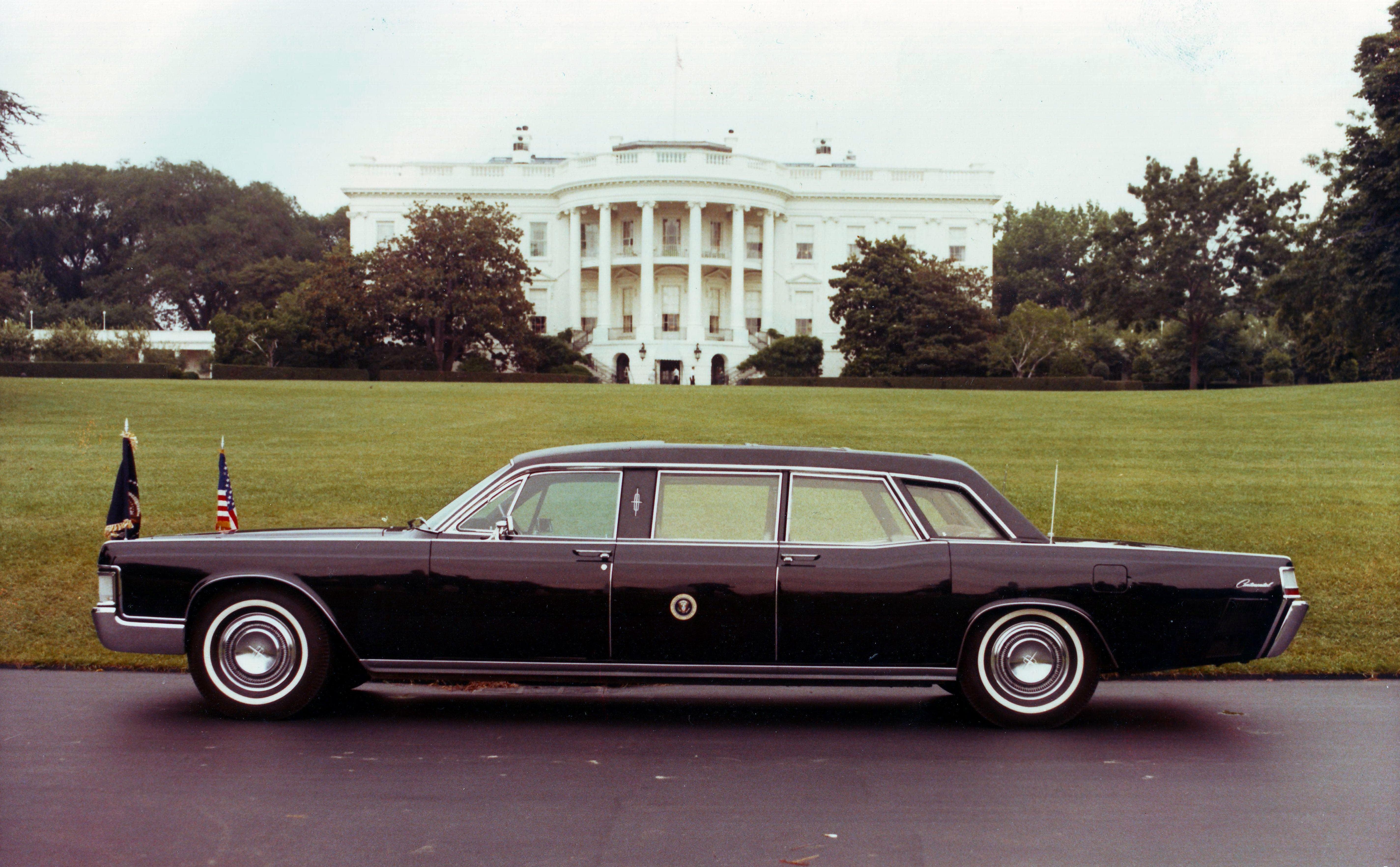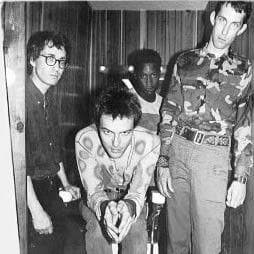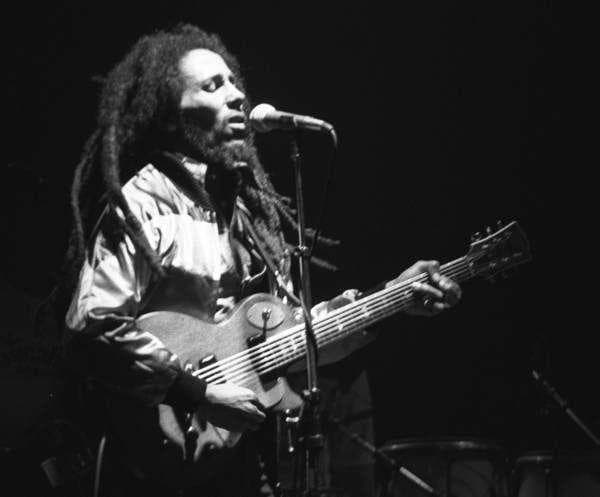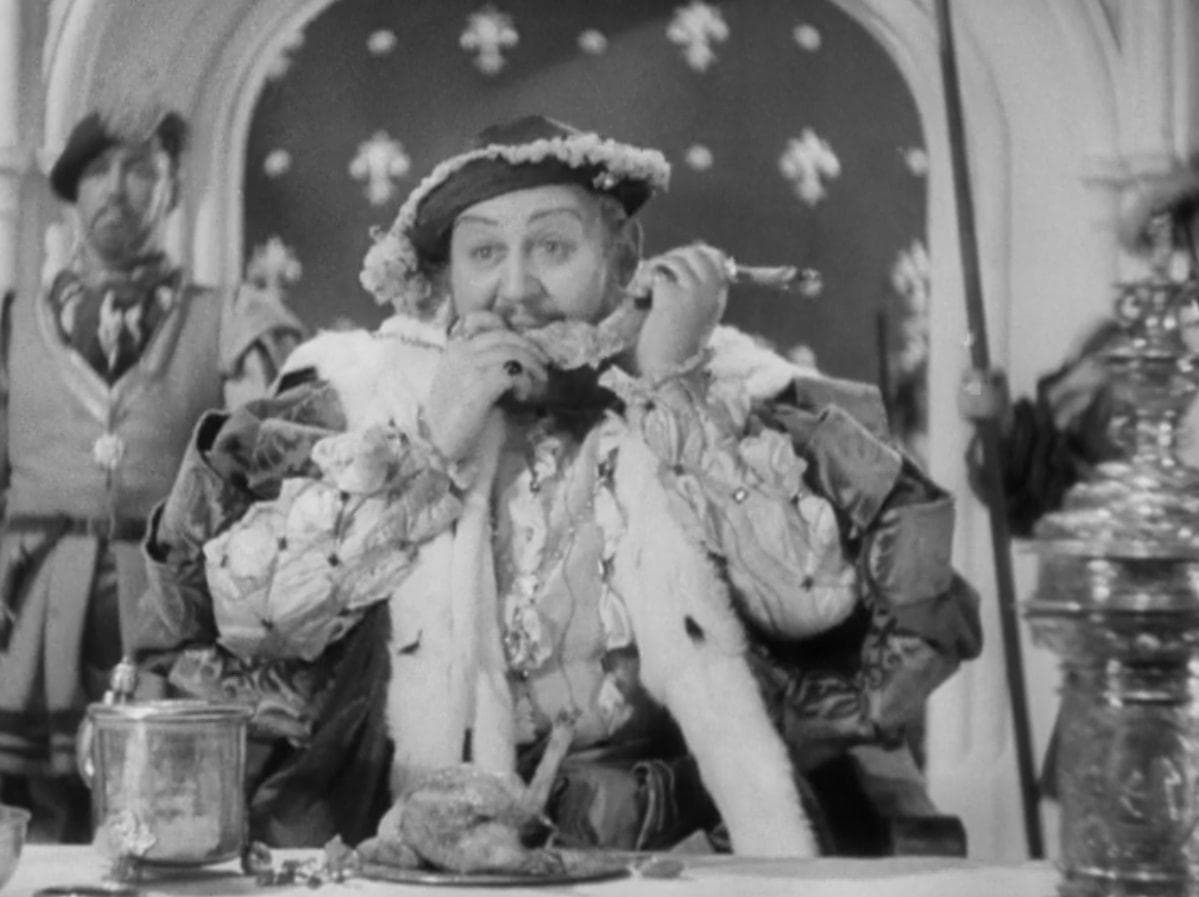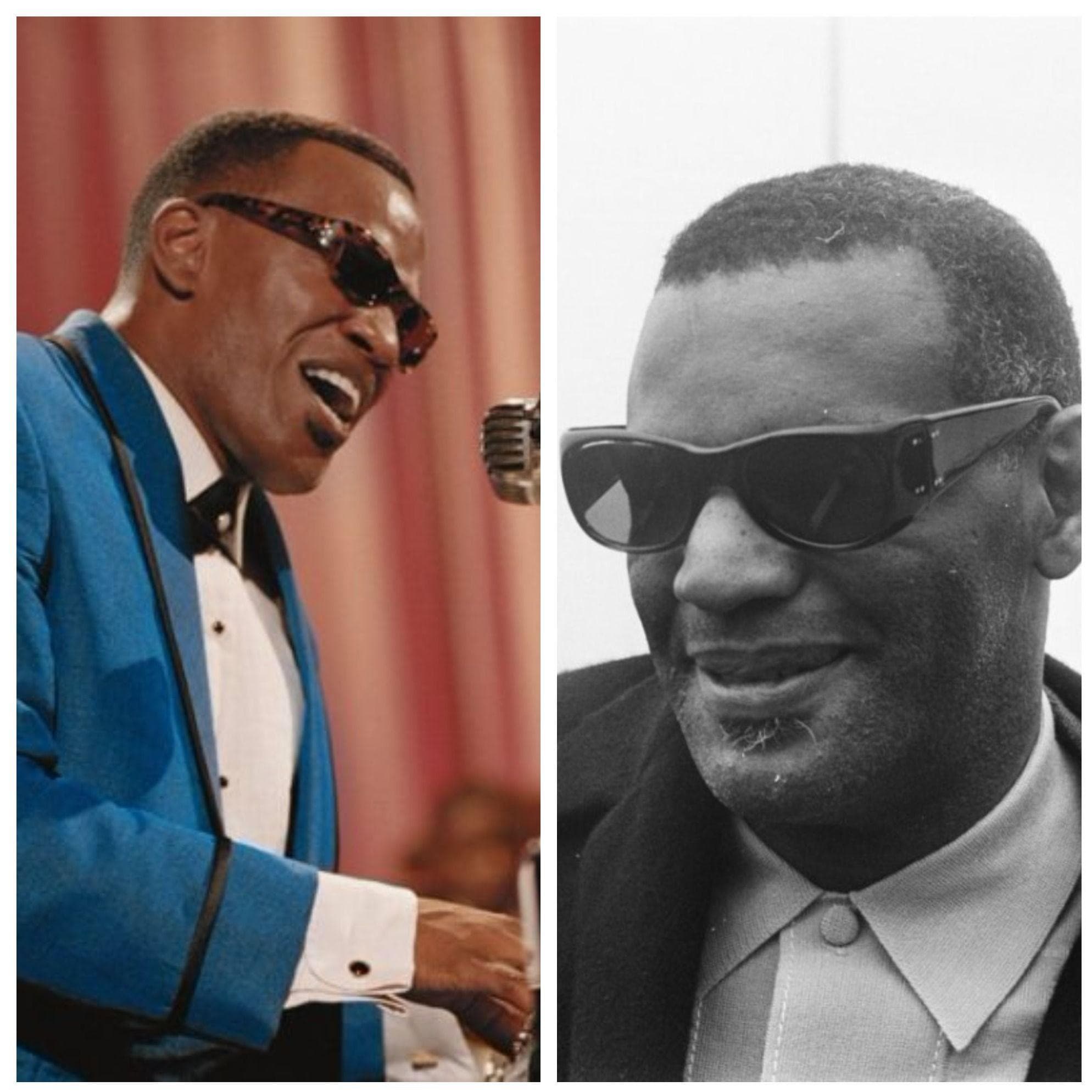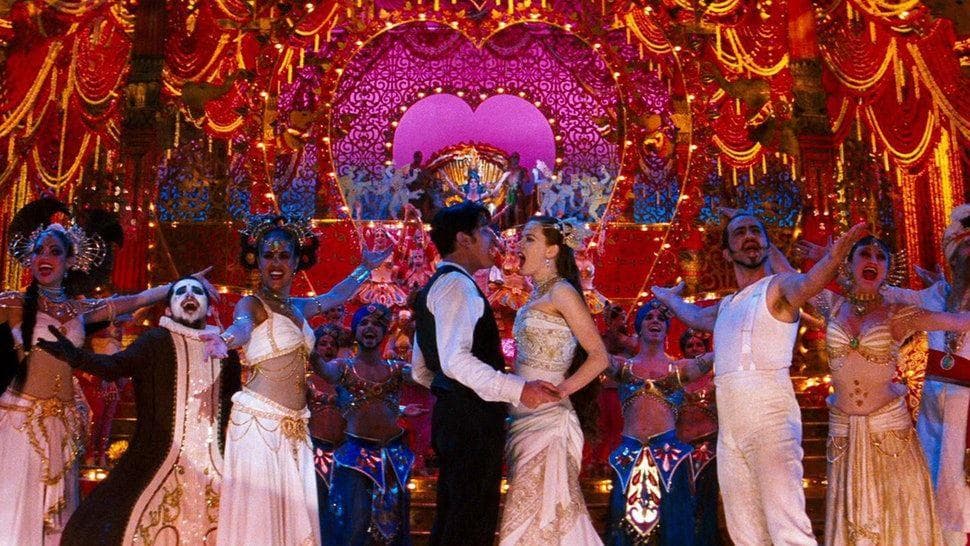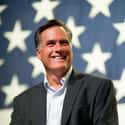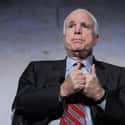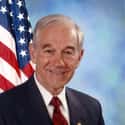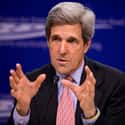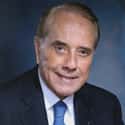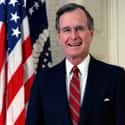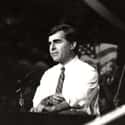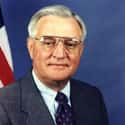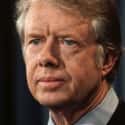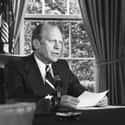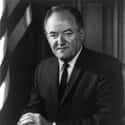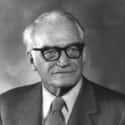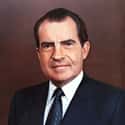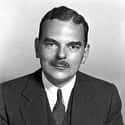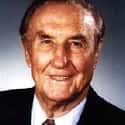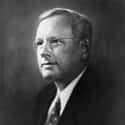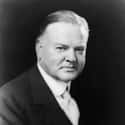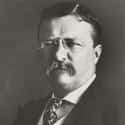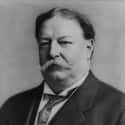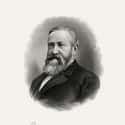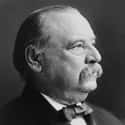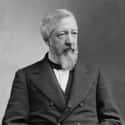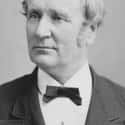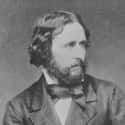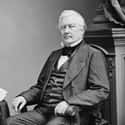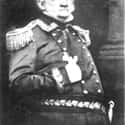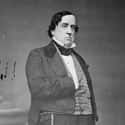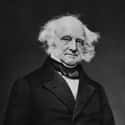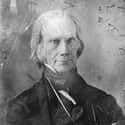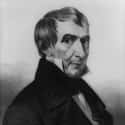-
(#1) Hillary Clinton
- 71
Campaign: 2016
Party: Democrat
Platform: Hillary Clinton's campaign focused on raising the federal minimum wage, bolstering renewable energy, providing low-cost college tuition, expanding healthcare, and helping immigrants legally enter the United States.
What She Did Next: Since losing the election, Clinton has authored a tell-all book about her campaign called What Happened.
-
(#2) Mitt Romney
- 71
Campaign: 2008, 2012
Party: Republican
Platform: Mitt Romney vowed to repeal Obamacare, reduce government spending, increase American manufacturing jobs, foster small businesses, and reverse Obama-era military defense cuts.
What He Did Next: Since losing the election to Barack Obama, the former Massachusetts governor is still pursuing a career in politics. Trump courted him for Secretary of State, but he was ultimately passed over for ExxonMobil CEO Rex Tillerson. He's contemplating a 2018 senate run in Utah should Senator Orrin Hatch retire.
-
(#3) John McCain
- Dec. at 81 (1936-2018)
Campaign: 2008, 2000
Party: Republican
Platform: The war hero championed the second amendment, vowed to cut agricultural regulations and government spending, and went back and forth on limiting abortion access.
What He Did Next: John McCain may have lost to Obama in 2008, but his fight isn't over. After being diagnosed with an aggressive form of brain cancer in 2017, he kept his seat as an Arizona senator and regularly went up against the Trump administration's agenda despite his illness. In line with his long-term goal of bipartisan politics, he was one of the few Republicans to vote against repealing the Affordable Care Act.
-
(#4) Ron Paul
- 83
Campaign: 1988, 2008 (withdrew campaign for Republican nomination after poor caucus results)
Party: Libertarian, Republican
Platform: Paul's campaign rested on the back of his critical views about America's banking and financial systems. He was pro-life and anti-federal government, and he aimed to lower taxes.
What He Did Next: In the '90s, Paul left the Libertarian party and became a Republican to earn a seat in the House of Representatives. He's been a member of the House since 1996. Paul also launched the internet broadcast, the Ron Paul Channel, where he talks about politics, and wrote a couple of books. Most recently, Paul endorsed his son in the 2016 election and called for Jeff Sessions to step down over his opinions on marijuana legalization.
-
(#5) John Kerry
- 75
Campaign: 2004
Party: Democrat
Platform: Kerry vowed to make the country "safer, stronger and more secure." He supported legal abortion, advocated repealing tax cuts for the wealthy, and planned to offer a new tax cut for employers who created jobs. He also wanted to implement the 9/11 Commission's anti-terrorism blueprint.
What He Did Next: In 2013, Kerry became Secretary of State after Obama's nomination. He retired in 2017 and is considering the idea of a 2020 presidential run.
-
(#6) Al Gore
- 70
Campaign: 2004, 1988
Party: Democrat
Platform: Former Vice President Al Gore famously held a 36-day Florida recount in his race against George W. Bush. His last presidential campaign focused on creating jobs, improving healthcare and educational opportunities, as well as protecting the environment.
What He Did Next: Al Gore has dedicated his life to battling climate change and won a Nobel Peace Prize in 2007 for his activism. Later that year, he was the runner-up for TIME's Person of the Year. Gore is a best-selling author, whose novel An Inconvenient Truth landed him a Grammy Award for Best Spoken Word Album. It was later optioned as an Academy Award-winning documentary by the same name. He's currently the founder and chair of the Alliance for Climate Protection.
-
(#7) Ralph Nader
- 85
Campaign: He's been running regularly since the '90s. Most notably, he ran for the Green Party in '00.
Party: Green Party
Platform: Ralph Nader is a champion of car safety reform and well-known consumer advocate. He's an activist who initiated the Wholesome Meat Act, which gave slaughterhouses federal regulations.
What He Did Next: Nader published the various letters he wrote to serving presidents about finance reform, minimum wage, and Supreme Court nominations. His book, Return to Sender: Unanswered Letters to the President 2001-2015, hit stores in 2015. He hoped it would inspire Americans to question their legislators and contact their representatives.
-
(#8) Bob Dole
- 95
Campaign: 1996
Party: Republican
Platform: Bob Dole aimed to stop deficit spending and affirmative action, expand clean and renewable energy, and tighten immigration restrictions.
What He Did Next: After losing the presidency to Bill Clinton, Dole focused on political activism, philanthropy, and his booming career in law. He endorsed Mitt Romney for president in 2012 and lobbied for the Convention of Persons with Disabilities legislation. Dole is also an author and wrote a number of books including the memoir One Soldier's Story.
-
(#9) Ross Perot
- 88
Campaign: 1996, 1992
Party: Independent
Platform: Perot is the most successful third-party candidate in history and won nearly 19% of the popular vote in 1992. His unique campaign focused on eliminating the federal budget deficit in just five years, a plan many economists and Congressional leaders thought was realistic.
What He Did Next: Perot retired from his company Perot Systems but remained the chairman until it was sold to Dell in 2009. In retirement, he explored a new career as an author and has written several books, including his 2013 memoir titled Ross Perot: My Life.
-
(#10) George H. W. Bush
- Dec. at 94 (1924-2018)
Campaign: 1992 (loss), 1988 (win)
Party: Republican
Platform: Bush lost when he ran for a second term, but during his presidency, he helped dissolve the Soviet Union and led a military strike to push Iraqi president Saddam Hussein out of Kuwait.
What He Did Next: Bush supported his son's successful presidential bid in 2000 with numerous public appearances. In 2005, he created the Bush-Clinton Katrina Fund with his presidential rival Bill Clinton, which raised over $100 million for Louisiana hurricane victims. In 2017, he was accused of sexual harassment, which he denied.
-
(#11) Michael Dukakis
- 85
Campaign: 1988
Party: Democrat
Platform: After previously arguing for furloughs for imprisoned murderers, Dukakis's main political issue became his support of a prison program that would ban furlough for murderers. He also championed the end of building and testing nuclear weapons and was famously painted as soft on defense by Republicans.
What He Did Next: After losing the 1988 presidential race, Michael Dukakis became the longest-serving Massachusetts governor in history. He also served on Amtrak's Board of Directors and taught at Northeastern University as well as the University of California, Los Angeles.
-
(#12) Walter Mondale
- 91
Campaign: 1984
Party: Democrat
Platform: Mondale served as Vice President under Jimmy Carter and decided to run for president in 1984 after they lost their reelection campaign in 1980. His platform focused on creating jobs for all Americans, regardless of wealth, and ending nuclear weapons programs worldwide.
What He Did Next: Walter Mondale continues to sound off on his liberal beliefs even at the age of 90. Most recently, he interviewed with the Star Tribune and discussed mentoring Senator Tina Smith as well as the dangers of President Trump's environmental policy and Twitter responses.
-
(#13) Jimmy Carter
- 94
Campaign: 1980 (loss), 1976 (win)
Party: Democrat
Platform: Carter's platform focused on an honest and transparent government. During his presidency, he helped create 8 million jobs, but struggled overall to bolster the economy, which cost him the election.
What He Did Next: Jimmy Carter became an avid philanthropist with the Carter Center, a nonprofit he formed with his wife in 1982. He helped improve the lives of people in over 65 different countries and led the charge in eradicating the Guinea worm, a parasite that infected 3.5 million people across Africa. He's helped reduce infections by 99%. After monitoring 44 different elections around the world and mediating numerous disputes in countries like Bosnia, Ethiopia, Haiti, North Korea and Sudan, he won a Nobel Peace Prize in 2002.
-
(#14) Gerald Ford
- Dec. at 93 (1913-2006)
Campaign: 1976
Party: Republican
Platform: After the unprecedented Watergate crisis, Ford became the first unelected president of the United States. He's often credited with helping restore America's confidence and trust in the government after Nixon's scandal, but he ended up losing his campaign for reelection in the midst of a domestic energy crisis and skyrocketing unemployment.
What He Did Next: Gerald Ford opened the famed Betty Ford Clinic in California after his wife battled alcoholism. He received the Presidential Medal of Freedom, America's highest civilian honor, in 1999. Ford passed away at his home in 2006.
-
(#15) George McGovern
- Dec. at 90 (1922-2012)
Campaign: 1972
Party: Democrat
Platform: As a US Senator, McGovern worked to end the Vietnam War and pushed for a minority-inclusive democratic party.
What He Did Next: After losing the presidency to Richard Nixon, McGovern became an author. He published a biography of President Abraham Lincoln and was awarded the Presidential Medal of Freedom for his service in WWII. He passed away in 2012 at the age of 90.
-
(#16) Hubert Humphrey
- Dec. at 67 (1911-1978)
Campaign: 1968 (lost as a democratic nominee), 1972 (lost in the primaries)
Party: Democrat
Platform: As assistant majority leader in the US Senate, Hubert Humphrey helped push the Civil Rights Act through Congress. As Lyndon B. Johnson's Vice President, he was the voice of the administration's Vietnam War policy. If elected, he vowed to end the US's bombing campaign in South Vietnam.
What He Did Next: After losing the presidency to Richard M. Nixon, Humphrey returned to the Senate. He made a brief bid as the Democratic presidential nominee in 1972 but lost in the primaries. He died from cancer in 1978.
-
(#17) George Wallace
- Dec. at 79 (1919-1998)
Campaign: 1968 (lost as independent nominee), 1964, 1972 and 1976 (lost in the democratic primaries)
Party: Independent, Democrat
Platform: George Wallace preached "segregation now, segregation tomorrow, segregation forever." He was backed by the Klu Klux Klan.
What He Did Next: He survived an assassination attempt while campaigning in 1972, but it left him paralyzed from the waist down. In 1985, he received an honorary degree from Tuskegee University, a historically Black school, and retired from politics a year later. When he was 72 years old, he told The Washington Post that his biggest regret was preaching segregation. He insisted he never thought Black people were inferior and never believed in white supremacy.
-
(#18) Barry Goldwater
- Dec. at 89 (1909-1998)
Campaign: 1964
Party: Republican
Platform: Goldwater rallied against liberal welfare programs as well as the Civil Rights Act, which passed in Congress while he served in the Senate. Goldwater also suggested using aggressive measures, such as nuclear war, to achieve US agendas in North Korea and Cuba.
What He Did Next: Goldwater was the one to tell Richard Nixon he should resign before he was impeached by Congress for the Watergate scandal. He eventually returned to the US Senate and retired in 1980.
-
(#19) Richard Nixon
- Dec. at 81 (1913-1994)
Campaign: 1960 (lost), 1968 (won), 1972 (won)
Party: Republican
Platform: Nixon had already served two terms as Vice President by the time he lost against John F. Kennedy. When he was later elected to the presidency, his achievements included withdrawing troops from Vietnam and developing diplomatic ties with China and the Soviet Union. He's best known for the Watergate scandal, which forced his resignation halfway through his second term before he was impeached.
What He Did Next: Nixon was pardoned from his crimes in the Watergate scandal and retired from politics. He wrote a number of books and traveled extensively. At age 81, he died from a stroke in New York City.
-
(#20) Adlai Stevenson II
- Dec. at 65 (1900-1965)
Campaign: 1956, 1952
Party: Democrat
Platform: Stevenson supported low tariffs and campaigned for the continuation of Franklin Roosevelt's New Deal and Harry Truman's Fair Deal.
What He Did Next: He became a permanent US representative to the United Nations and frequently spoke out about the Vietnam War as well as communism until his death in 1965.
-
(#21) Thomas E. Dewey
- Dec. at 69 (1902-1971)
Campaign: 1948, 1944
Party: Republican
Platform: Dewey believed in fostering the success of farmers and expanding agriculture. He promoted political unity across all parties. His loss in 1948 was considered one of the biggest political upsets in history.
What He Did Next: He served as the Governor of New York until 1954 then ended his career in politics to focus on practicing law. He died in 1971 at the age of 68.
-
(#22) Strom Thurmond
- Dec. at 101 (1902-2003)
Campaign: 1948
Party: Independent
Platform: Thurmond won a whopping 39 electoral votes while aggressively campaigning for segregation.
What He Did Next: Thurmond was appointed to the Senate as a Democrat in 1954 during a write-in campaign. He later moved to the Republican party and served in Congress until he died at age 100.
-
(#23) Wendell Willkie
- Dec. at 52 (1892-1944)
Campaign: 1940, 1944 (lost in the primaries)
Party: Republican
Platform: Willkie was a liberal internationalist despite running for the Republican Party. He had the same ideas about foreign policy as his campaign rival, Franklin D. Roosevelt.
What He Did Next: Willkie spent his time after the 1940 election preparing for a second presidential run while practicing law. He died from a heart attack in 1944 after conceding during the primaries because of poor performance.
-
(#24) Alf Landon
- Dec. at 100 (1887-1987)
Campaign: 1936
Party: Republican
Platform: Landon was a fiscal conservative and was outspoken about social issues. He described his views as practical progressive. "The Republican party or any political party has got to recognize the problems of a growing and complex industrial civilization. And I don't think the Republican party is really wide awake to that," he said.
What He Did Next: Landon retired from politics after finishing his term as Governor of Kansas. He remained a leader and advisor in the Republican Party and died shortly after his 100th birthday.
-
(#25) Herbert Hoover
- Dec. at 90 (1874-1964)
Campaign: 1932 (loss), 1928 (win)
Party: Republican
Platform: Hoover was known as a humanitarian but couldn't bolster the country's collapsed economy during the Great Depression. The stock market crashed one year into his presidential win and cost him the next election.
What He Did Next: In 1945, Hoover organized a European war relief campaign and traveled to 38 countries, documenting their food needs and arranging aid. In 1947, he was appointed as the chairman of the Commission on Organization of the Executive Branch, where he helped streamline government operations. After retiring from politics later in life, Hoover became an author.
-
(#26) Alfred Smith
Campaign: 1928 (lost as democratic nominee), 1924 (lost in primaries)
Party: Democrat
Platform: Smith was a highly religious candidate who preached his Roman Catholic faith but believed fiercely in the separation of church and state.
What He Did Next: He founded the American Liberty League, a group of wealthy industrial leaders who tried to quash New Deal programs. He eventually became a Republican and spent several years as president of the organization that operated the Empire State Building. He died in 1944.
-
(#27) John Davis
Campaign: 1924
Party: Democrat
Platform: Davis was a Conservative Democrat, advisor to President Woodrow Wilson at the Paris Peace Conference, and an ambassador to Great Britain.
What He Did Next: After losing the election, Davis returned to his law practice. His cases frequently brought him in front of the US Supreme Court.
-
(#28) James M. Cox
- Dec. at 87 (1870-1957)
Campaign: 1920
Party: Democrat
Platform: Cox was only 26 years old when he was elected to the House of Delegates. Later, he was appointed Chairman of the Judiciary Committee and regularly supported some of the most progressive legislation brought to Congress.
What He Did Next: He retired from politics after a landslide loss and pursued various business opportunities away from the public eye. He died in 1957.
-
(#29) Charles Evans Hughes
- Dec. at 86 (1862-1948)
Campaign: 1916
Party: Republican
Platform: As an Associate Justice of the Supreme Court, he championed first and 14th amendment rights while leading the court through the controversial New Deal legislation.
What He Did Next: Hughes became the Secretary of State when Warren G. Harding won the presidential election in 1920. He left office in 1925 and continued to serve the Supreme Court, where he eventually became Chief Justice. He authored a number of books and eventually retired in 1941. He died in 1948.
-
(#30) Theodore Roosevelt
- Dec. at 61 (1858-1919)
Campaign: 1912 (loss), 1904 (win)
Party: Independent, Republican
Platform: Theodore Roosevelt became president after the assassination of William McKinley. In the two elections he ran – one as a Republican nominee and one as a Progressive independent – Roosevelt stood firm against monopolies and had great success in foreign affairs with his mantra "speak softly and carry a big stick." He became the first American to win a Nobel Peace Prize in 1906 for his aid in ending the Russo-Japanese War. He also set aside 200 million acres for national forests and wildlife reserves.
What He Did Next: After losing the presidency, Roosevelt advocated for American entry into WWI. When America finally entered the war in 1917, he supported all three of his sons as they enlisted, the youngest of which died in battle. In 1919, Roosevelt passed away in his sleep at the age of 60.
-
(#31) William Howard Taft
- Dec. at 73 (1857-1930)
Campaign: 1912 (loss), 1908 (win)
Party: Republican
Platform: Taft, a judge in the Ohio Superior Court and US Sixth Circuit Court, was the first civilian governor of the Philippines before becoming the Secretary of War to Theodore Roosevelt in 1904. After winning the presidential race in 1908, he took his hyper-conservative policy to the White House and eventually lost to Woodrow Wilson after Roosevelt's more liberal views split Republican party votes.
What He Did Next: He became Chief Justice of the US Supreme Court and held the position until his death in 1930.
-
(#32) William Jennings Bryan
- Dec. at 65 (1860-1925)
Campaign: 1908, 1900, 1896
Party: Democrat
Platform: The Nebraska Congressman supported numerous progressive ideas like women's suffrage and prohibition. He pushed for a dry America, and believed the states should control liquor traffic "without interference from outside breweries and distilleries."
What He Did Next: Between his losses, Bryan ran a newspaper and toured as a public speaker. In 1912, he became Woodrow Wilson's Secretary of State. He continued fighting for prohibition until the 18th amendment passed.
-
(#33) Alton B. Parker
- Dec. at 74 (1852-1926)
Campaign: 1904
Party: Democrat
Platform: Parker was a member of the Supreme Court and served as Chief Justice of the New York Court of Appeals until 1904. His campaign supported the gold standard, a disappointment to many Democrats and Wall Street progressives who hoped William Jennings Bryan would take the country off the gold standard if he won the election.
What He Did Next: Parker returned to his law practice after a sweeping upset.
-
(#34) Benjamin Harrison
- Dec. at 68 (1833-1901)
Campaign: 1892 (loss), 1888 (win)
Party: Republican
Platform: Harrison supported protective tariffs throughout his first term as president which led to rising costs for consumers. He also signed the Sherman Antitrust Act, which forbids any one person from monopolizing interstate or foreign trade, a victory against cartels and big business.
What He Did Next: Upon losing his bid for reelection, Harrison returned to his law practice and nurtured a budding career in public speaking. He died in 1901.
-
(#35) Grover Cleveland
- Dec. at 71 (1837-1908)
Campaign: 1888 (loss), 1892, 1884 (win)
Party: Democrat
Platform: Cleveland was against subsidies, special interests, and women's suffrage. He exercised his veto power 414 times throughout his first term, more than double any president before him. He was also known for his honesty. He didn't support African American equality and opposed discrimination against Chinese immigrants.
What He Did Next: He declined running for a third term and returned home to Princeton, New Jersey, where he served as a trustee of Princeton University until his death in 1908.
-
(#36) Belva Ann Lockwood
- Dec. at 87 (1830-1917)
Campaign: 1884, 1888
Party: Equal Rights Party
Platform: Lockwood was a champion of women's rights – it was the primary focus of her two campaigns. She was the first woman to run for president, even though women couldn't vote at the time.
What She Did Next: Before she ran for president, she fought her way up the ranks of law school and eventually received a law degree, much to the dismay of her classmates. She passed the bar, and after running for president, opened her own practice.
-
(#37) James G. Blaine
- Dec. at 63 (1830-1893)
Campaign: 1884
Party: Republican
Platform: He strongly opposed Andrew Johnson's reconstruction plan and voted to impeach him while serving in Congress. He was a strong supporter of protective tariffs and hard money programs.
What He Did Next: Blaine didn't want to run in 1888 and instead supported Benjamin Harrison. He continued on as Secretary of State until he resigned in 1892.
-
(#38) Winfield Scott Hancock
- Dec. at 62 (1824-1886)
Campaign: 1880
Party: Democrat
Platform: Hancock was regarded as a brilliant commander, particularly during the Battle of Gettysburg where he led Union troops to victory. He strongly believed in states' rights and scaled back martial law policies through his work in the military.
What He Did Next: After losing his presidential bid in 1880, he returned to the Department of the Atlantic, a command that oversaw many military operations in the Northeast. He was also elected president of the National Rifle Association in 1981. Hancock was 61 years old when he passed away in 1886.
-
(#39) Samuel J. Tilden
- Dec. at 72 (1814-1886)
Campaign: 1876
Party: Democrat
Platform: Tilden supported the Union during the Civil War and helped reorganize the Democratic Party while serving as party chairman of New York State.
What He Did Next: His election was so drama-filled that Congress created an Electoral Commission to deal with it. They opted for his opponent, and Tilden accepted the verdict despite winning the popular vote. He had very poor health, which forced him into less intensive government roles but continued to practice law after his loss. He invested his money and became extremely wealthy, and he died a rich man in 1886.
-
(#40) Thomas A. Hendricks
- Dec. at 66 (1819-1885)
Campaign: 1872
Party: Democrat
Platform: Hendricks ultimately lost the election because of his vote for the Kansas-Nebraska Act, which repealed the Missouri Compromise and let individual territories decide slavery laws. He was known as a War Democrat, or a democrat who supported the confederacy and attempted to stop African Americans from gaining the right to vote.
What He Did Next: After losing, Hendricks traveled through Europe and returned to his law practice. He continued making speeches and booking public appearances. A stroke incapacitated one of his feet and he eventually died in 1885.
-
(#41) Horatio Seymour
- Dec. at 76 (1810-1886)
Campaign: 1868
Party: Democrat
Platform: Seymour was a conservative when it came to national politics. He wanted to preserve the Union and avoid war, hoping the confederacy would compromise (they did not).
What He Did Next: Seymour remained active in New York politics after losing the election to Ulysses S. Grant. He remained private and off the radar, never running for major office again.
-
(#42) George B. McClellan
- Dec. at 59 (1826-1885)
Campaign: 1864
Party: Democrat
Platform: McClellan ran against Abraham Lincoln under the premise of peace and ending the Civil War, but he didn't personally believe in his party's platform, which claimed the war was a failure. By 1864, he was known as the "Young Napoleon of the West" for his work in the military.
What He Did Next: After losing the election, he sailed to Europe. When he came back in 1868, he served as the chief engineer of the New York Department of Docks and later became president of the Atlantic and Great Western Railroads. He also served a single term as New Jersey's governor. He additionally wrote numerous memoirs and traveled.
-
(#43) John C. Breckinridge
- Dec. at 54 (1821-1875)
Campaign: 1860
Party: Democrat
Platform: Breckenridge opposed the Democratic idea of popular sovereignty, the notion that people in each territory would be able to decide if slavery was allowed in their region. Instead, he fought for federal mandates despite claiming he wasn't anti-union. He simply believed slavery couldn't be banned until a territory became an actual state.
What He Did Next: After losing to Abraham Lincoln, Breckinridge became one of Kentucky's senators but resigned within a year. He went on to work with the Confederate Army and was the Confederate Secretary of War. After the Confederacy lost, he fled to England and exiled himself for three years before returning to his law practice stateside.
-
(#44) John C. Fremont
Campaign: 1856
Party: Republican
Platform: He was the first candidate of the newly reformed Republican Party.
What He Did Next: Fremont was appointed a major general of Union troops in Missouri during the Civil War, but was fired after trying to confiscate property and ordering the emancipation of the state's slaves. He was given another leadership position in the Appalachian region but resigned after losing his command. In 1864, he received a Presidential nomination from the Republican Party, but withdrew his candidacy because it would have divided the party during the election. He then lost his fortune in various railroad projects and became governor of the Arizona Territory until 1883. He died in 1890.
-
(#45) Millard Fillmore
- Dec. at 74 (1800-1874)
Campaign: 1856, 1852
Party: American, Whig
Platform: Fillmore was an advocate of the Fugitive Slave Act, which eventually led to the downfall of the Whig Party.
What He Did Next: Fillmore retired to Buffalo, NY. Five years after the death of his first wife, he married Caroline Carmichael McIntosh.
-
(#46) Winfield Scott
- Dec. at 80 (1786-1866)
Campaign: 1852
Party: Whig
Platform: Winfield Scott was a prominent military figure between the Revolution and the Civil War and remained loyal to the Union throughout his service.
What He Did Next: Scott was promoted to lieutenant general in 1855 and became the first man since George Washington to hold such a high rank. He angrily retired in 1861 after being ridiculed over his plan to split the Confederacy. He published a memoir in 1864 and died two years later.
-
(#47) Lewis Cass
- Dec. at 84 (1782-1866)
Campaign: 1848
Party: Democrat
Platform: Cass demanded the re-annexation of a large swath of the Oregon country.
What He Did Next: After losing his presidential campaign, he became the Secretary of State under James Buchanan. He retired after Buchanan didn't want to pressure the secession of Southern states.
-
(#48) Martin Van Buren
- Dec. at 80 (1782-1862)
Campaign: 1848, 1840 (loss), 1836 (win)
Party: Democratic, Free Soil
Platform: Van Buren was Secretary of State under Andrew Jackson and quickly became his most trusted advisor. Though he won the presidency in 1836, a 1837 economic crash destroyed his chances of reelection. He believed the panic and crash were caused by an overexpansion of credit and recklessness in business. For this reason, he opposed the creation of a new Bank of the United States. He also opposed the expansion of slavery and blocked the annexation of Texas.
What He Did Next: He retired in 1848 and hung out in his Kinderhook estate while writing an autobiography. He died in 1862.
-
(#49) Henry Clay
- Dec. at 75 (1777-1852)
Campaign: 1844, 1832, 1824
Party: Whig, Republican, Democratic-Republican
Platform: Clay fervently opposed the annexation of Texas and was known for helping create the American System, which promoted America's economic success. He also championed the Missouri Compromise.
What He Did Next: Clay returned to the Senate and championed an early version of the Compromise of 1850. He died of tuberculosis in 1852.
-
(#50) William Henry Harrison
- Dec. at 68 (1773-1841)
Campaign: 1836, 1840 (win)
Party: Whig
Platform: As governor of the Indiana Territory, he did everything he could to bring white settlers to Native American land.
What He Did Next: Harrison was finally elected president in 1840, but died a month after his inauguration when he refused to wear a hat or coat during his lengthy speech, which he delivered outside in inclement weather. He died four weeks later of pneumonia.
New Random Displays Display All By Ranking
About This Tool
Since 1896, in the US presidential elections, the failed candidates will openly admit that they have failed. Since 1796, acknowledging the failure to stand for election has been an integral part of the peaceful transfer of power in the United States. The speech of the loser is also a core drama in the political drama of the presidential election.
There is no doubt that losing in the presidential election is a thing that frustrates candidates, but many outstanding politicians in history have learned valuable lessons from the election experience and succeeded in their lives and careers. The random tool introduced 57 notable presidential election losers you should know.
Our data comes from Ranker, If you want to participate in the ranking of items displayed on this page, please click here.

